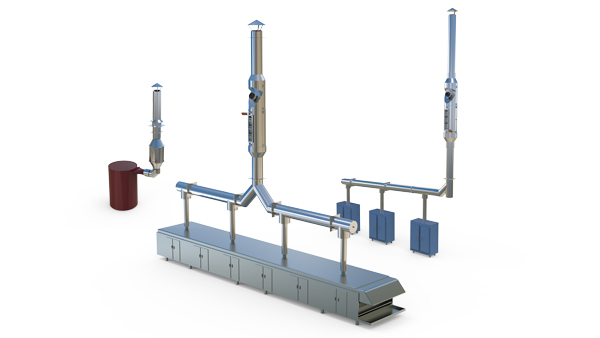
The food and beverage industry is a vast and dynamic sector that plays a crucial role in the global economy. It encompasses the production, processing, distribution, and retail of food and beverage products to consumers. Within this industry, sustainability and efficiency are becoming increasingly important, particularly in the context of environmental concerns and the need to reduce waste.
One innovative solution that addresses these concerns is air-to-water waste heat recovery. This technology captures and reuses the heat generated during industrial processes, which would otherwise be lost to the environment. By converting this waste heat into usable hot water, businesses can significantly reduce their energy consumption and lower their operational costs.

Picture: Examples of where air-to-water waste heat recovery can be applied in various applications.
Air-to-water waste heat recovery can be applied in various applications within the food and beverage industry. For instance, it can be used in:
The benefits of implementing air-to-water waste heat recovery systems in these applications are multifaceted. They include:

In conclusion, air-to-water waste heat recovery represents a valuable opportunity for the food and beverage industry to enhance its sustainability and efficiency. By embracing this technology, businesses can not only contribute to environmental conservation but also achieve economic benefits and maintain a competitive edge in the market. As the industry continues to evolve, it is likely that the adoption of such innovative solutions will become increasingly widespread, reflecting a broader commitment to responsible and sustainable business practices.
Next:
Part 1: Air-to-Water Waste Heat Recovery in Dairy processing plants